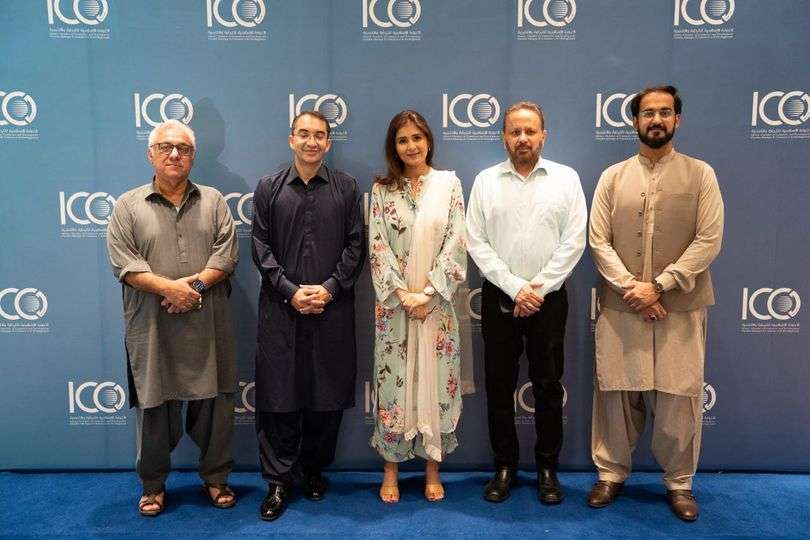Lahore, May 8, 2024: LUMS hosted the 2nd Symposium on Battery Electric Vehicles (BEVs) in Pakistan in collaboration with the Higher Education Commission (HEC) Pakistan, World Bank, and the International Finance Corporation (IFC). Focused on ‘Accelerating the Electric Mobility Transition in Pakistan’ this year, the symposium brought together senior leaders, policymakers, academics, and industry experts. The event featured distinguished speaker sessions and panel discussions on progress, challenges, and ways for electrification of transportation in the country in line with global trends.
Dr. Shakeel Sadiq Jajja, Chair of the Symposium and Associate Professor, Suleman Dawood School of Business, LUMS, speaking on the scope of BEVs in Pakistan, shared that, “The electrification of transportation is rising in the last few years much more rapidly all over the world. The key environmental benefit attributed with BEVs is that they have zero tail-pipe emissions along with the low cost of operation. The environmental benefit is fully harnessed if these vehicles are powered through sustainable sources of electricity. At a different level, BEVs provide an opportunity to develop new supply chains and industries which are critical to the future of the economy such as batteries, robotics, big data, and analytics.”
The symposium covered critical areas ranging from the Electric Vehicle (EV) landscape in Pakistan, international best practices to industry perspectives on demand, supply, charging, and financing. The event also showcased an exhibition of EV-related products and services. It served as a pivotal platform for fostering dialogue and collaboration for the government and industry on the BEV value chain.
Ms. Jen Jungeun Oh, Practice Manager, Transport, South Asia, at the World Bank shared that, “The EV symposium has brought together key stakeholders in the EV ecosystem in Pakistan and generated several useful takeaways. Stakeholders agreed that concerted action is needed to catalyse EV adoption in the country, focused first on electric two and three wheelers and electric buses, given their prevalence and socio-economic importance. Key strategies include strengthening the policy environment, reducing capital costs through localisation of procurement particularly for e-buses, and unlocking affordable commercial financing through risk sharing instruments. The World Bank is committed to partner with the EV ecosystem on this journey.”
Mr. Zeeshan Sheikh, IFC’s Country Manager for Pakistan and Afghanistan added that, “Globally, in recent years, IFC has invested over USD 3 billion in e-mobility related initiatives, and we are committed to drawing on our experiences to support the private sector and the Government of Pakistan in fostering an enabling environment for enhanced adoption and investment in BEVs in Pakistan.”
The event underscored LUMS, HEC, the World Bank and IFC’s commitment to fostering innovation and addressing pressing societal challenges through collaborative efforts. By harnessing the collective expertise and insights of participants, the symposium aimed to charter a course towards a greener, more sustainable future for transportation in Pakistan.

















